Netball Australia takes significant step towards addressing historical marginalisation of First Nations players
The Black Swans program has been described as a “great start” to addressing the underrepresentation of First Nations players, but it is just that, a starting point. EMMA GREENWOOD speaks to two of netball’s most influential voices for their people about the pathways concept.
It’s the single step that Netball Australia hopes will start a journey of a thousand miles.
The national body has moved to address the stark underrepresentation of indigenous players at elite levels of the game by naming its inaugural First Nations national invitational team to compete in the Pacific Netball Series in Brisbane next month.
The Black Swans, named after the uniquely Australian species that features in dreaming stories throughout many First Nations language groups across the nation, represent the beauty and rareness of the animal inherently linked to this native land.
But inaugural coach Ali Tucker-Munro, a former Diamonds squad member and proud Kamilaroi woman, said the team would also embrace its creation as a Black Swan event – a rare but significant, if unexpected, occurrence – as the sport aims to address its historical marginalisation of First Nations players.
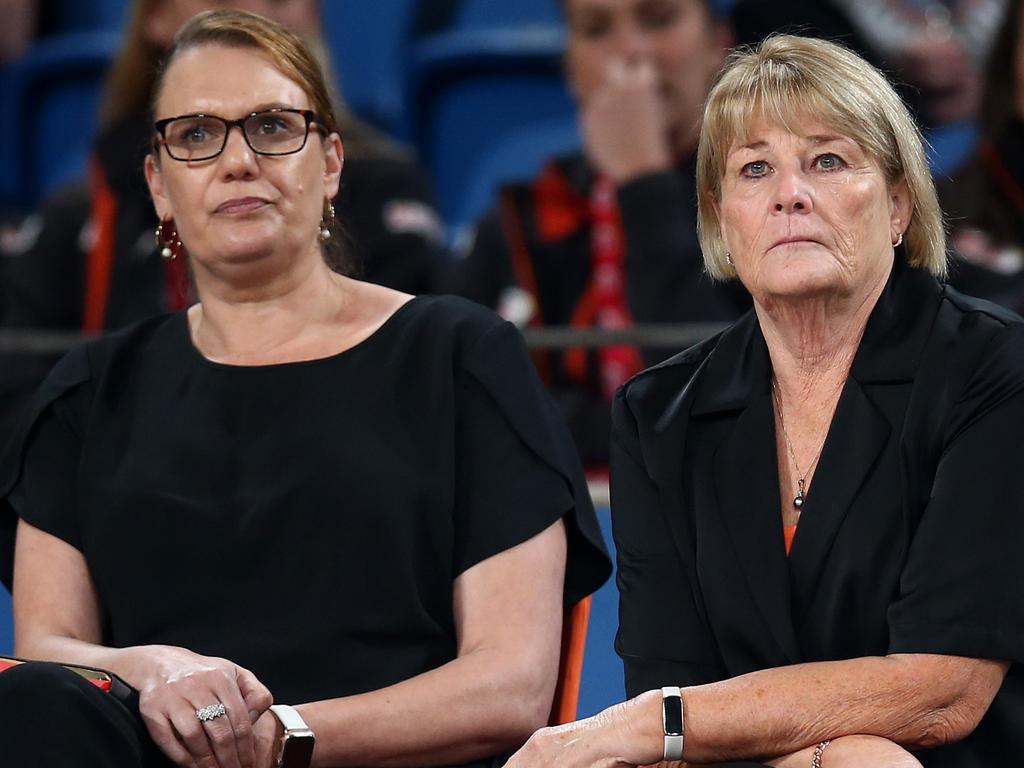
Just three First Nations women have represented the Diamonds.
While Tucker-Munro, a dogged defender who played more than 100 games for the Sydney Sandpipers, Hunter Jaegers and Adelaide Ravens in the Commonwealth Bank Trophy, was in the Australian squad, her path to the top was blocked by a couple of decent players in Diamonds legends Liz Ellis and Mo’onia Gerrard.
Tucker-Munro, who by then had had the first of her four sons, made the national squad in 2002 and would have become just the third Indigenous Diamond after Marcia Ella-Duncan and Sharon Finnan-White, had she made the team.
That it took another 20 years, until the international debut of Donnell Wallam, for that to happen, is a stain on the sport.
“There is a bit of a trust deficit that exists within the sport and our communities,” Tucker-Munro, who is also NA’s First Nations Engagement Lead, said.
“And it’s been one that’s been bubbling away for quite some time and then obviously became apparent not long ago in a couple of instances.
“Coming into this role having been a part of Netball Australia’s Reconciliation Action Plan working group 10 years ago with Marcia Ella-Duncan and Sharon Finnan-White, I just had an epiphany in that moment where I just thought, sometimes the only way to make that change is to go inside the tent.”
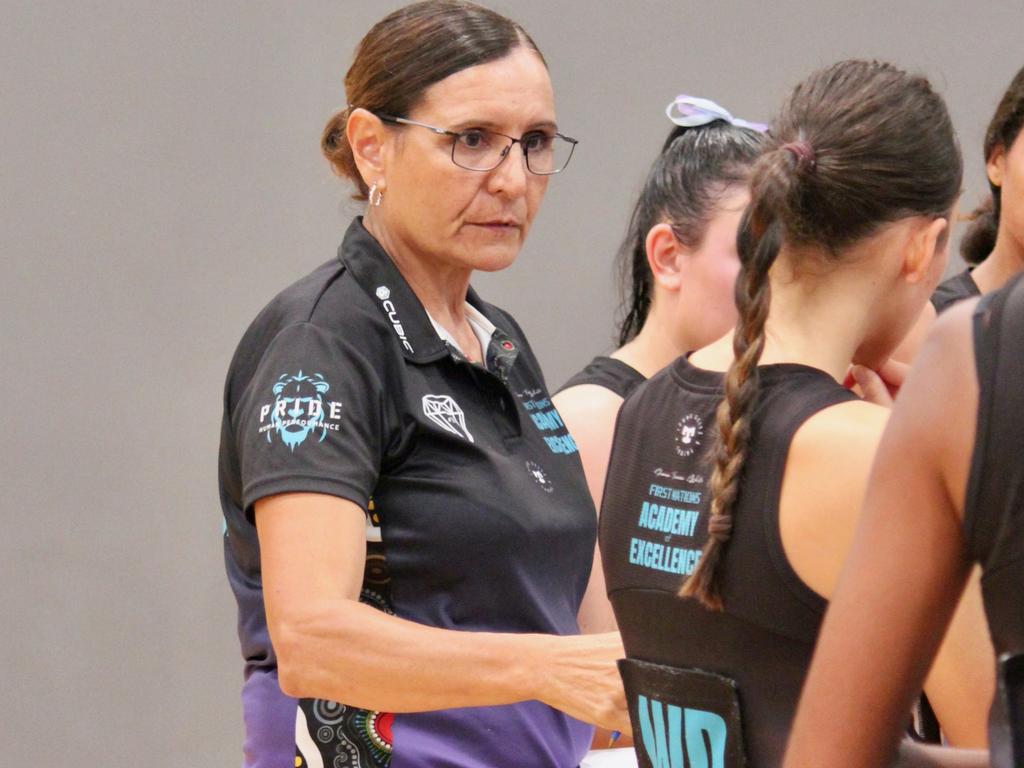
CHECK YOUR IDENTITY AT THE DOOR
Tucker-Munro, who became the first First Nations mentor to coach at Super Netball level when an assistant on the Giants’ bench in 2022, brings her own lived experiences and those that other high performance indigenous players have shared with her over the decades, to the role.
For too long there has been a sense of code switching for First Nations players, the conscious or unconscious adjustments of language, behaviour and appearance to fit into the dominant culture – or as some put it “checking your Aboriginality at the door”.
But the formation of the Black Swans aims to provide equitable and accelerated opportunities for Aboriginal and Torres Strait Islander players informed by netball’s commitment to increase representation and retention of First Nations athletes within the high-performance pathway.
“It’s about the recognition that there are some amazing First Nations athletes in our netball pathway system, often unseen and people don’t know about them being there – and that can be really deflating for them,” Tucker-Munro said
“For me, it’s about giving some visibility and voice to these empowered, proud Aboriginal and Torres Strait Islander women, who are doing the heavy lifting and the hard yards in the pathway space.
“This is recognition that this is our pathway for indigenous women in netball, and we’re going to showcase them and we’re going to celebrate them.
“It is not a parallel program. It is very similar to what the NRL run with Indigenous All Stars – they come together to fill their cultural and spiritual cup up as proud black women and know that they have got a collective behind them that is cheering them on and that are here if needed.”
HERE IF YOU NEED
It’s netball’s creed and one that Tucker-Munro is determined will extend to First Nations players in the game to ensure there is better representation at all levels.
Wallam, who will run out with the Queensland Firebirds to celebrate Super Netball’s First Nations round this weekend, said she was happy to see the Black Swans come to life and watch them play in June.
“I think it’s a great opportunity for our girls to get that exposure to a high performance environment and also feel safe in that in that environment, which is so important,” Wallam said.
“That’s going to encourage them to want to go further and it’s going to give them the tools and resources that when they do make it you know into SSN (Super Netball) and beyond, they will know where to go and who to reach out to.
“And they’ll also know themselves a little bit better and be able to stand up for themselves in these high performance environments, so I think it’s really important and a great start.”
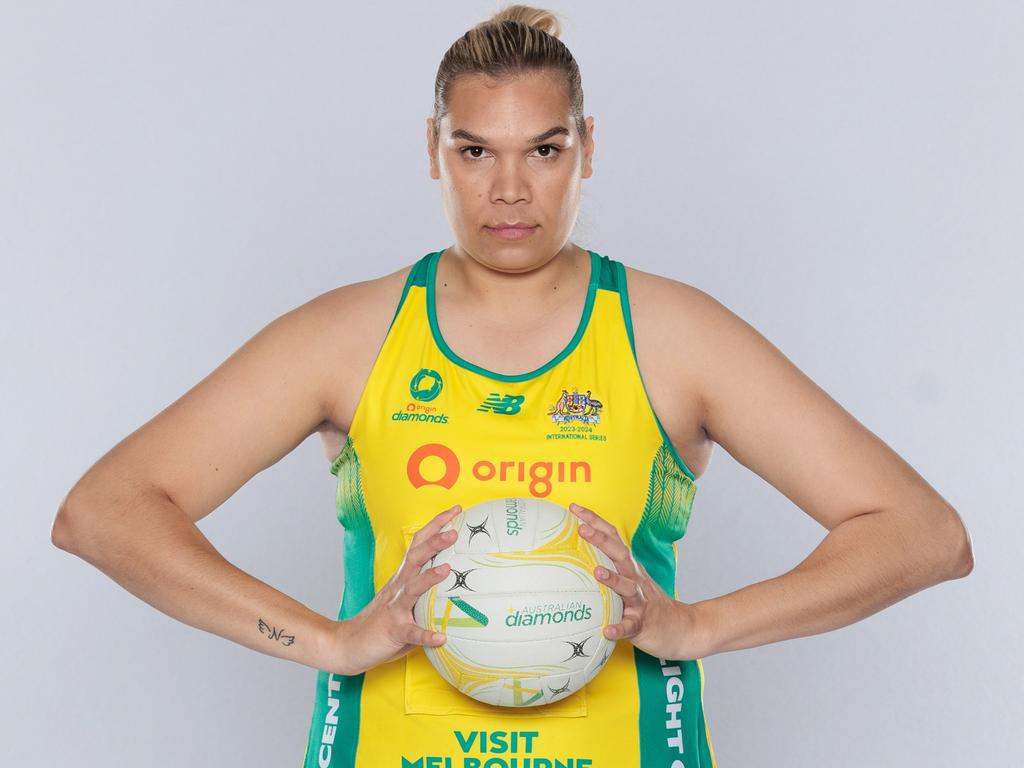
NSW Premier League defender Tegan Holland is one of the 12 players named in the inaugural Black Swans side.
Like Tucker-Munro, Holland is a Kamilaroi woman, who entered the sport’s high performance pathway when she moved south to study physiotherapy at the University of Sydney.
A NSW U19 representative, Holland, who now plays for the South Coast Blaze while working at Wollongong Hospital, juggled study and work commitments and had all but given up on her Super Netball dreams before her Black Swans selection reignited that spark.
“I think this competition has sparked another flame within me,” she said.
“It was always a goal growing up and one of the main reasons I did move to Sydney was to pursue netball but I think (I’d) been quite overlooked in the pathways beyond that state team.
“It’ll be interesting to see how the (Pacific Cup) tournament pans out and how our team goes up against these national teams.
“It is always on my mind and definitely something that I will commit to if I got the opportunity.”
STARTING WITH BABY STEPS
Tucker-Munro knows the Black Swans concept alone won’t fix every issue.
But it’s a start.
“We’ve got a long way to go but for me, this team is a first step,” Tucker-Munro said.
Holland and Wallam agreed the concept was a good starting point.
“(This team is) the first of its kind and I’m just really hoping that it continues on for the next few years as well to give the younger generation something to look forward to and strive towards,” Holland said.
“It’s definitely a good first step. I think anything’s better than nothing.
“For all the hard work that Ali’s done behind the scenes as well it’s just really special to be a part of this team and we’re really looking forward to what is ahead with this space.”
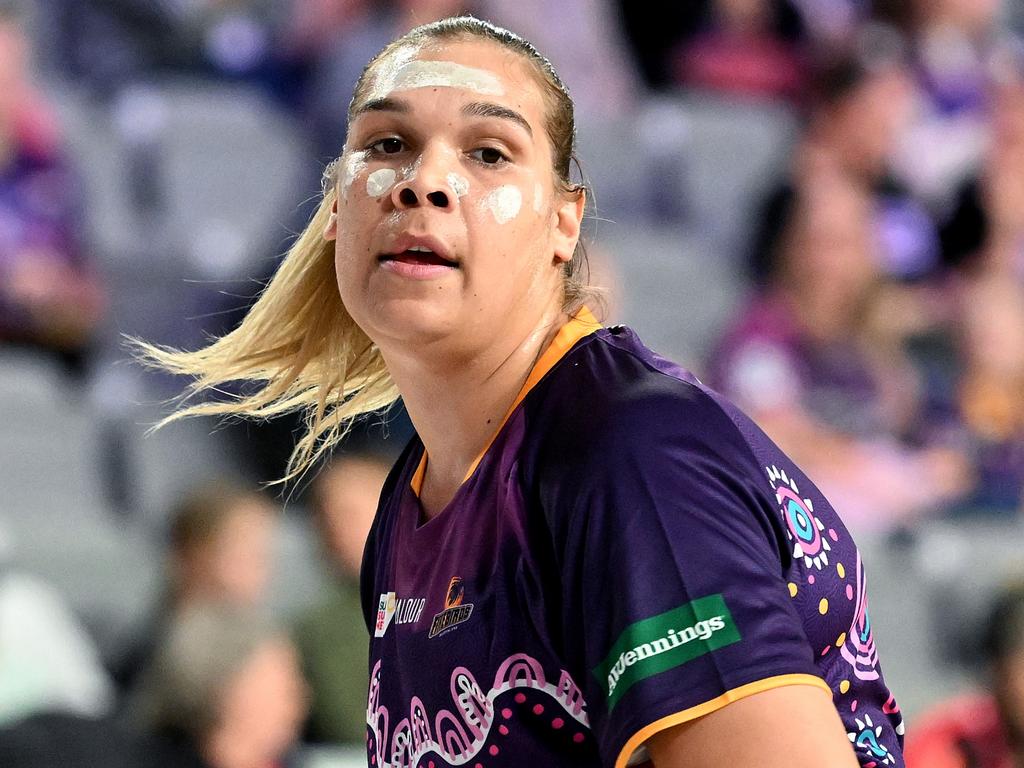
Wallam too, is glad to see a start after being asked continually, for solutions around the lack of First Nations players at the elite level of the game.
The Noongar woman, from the Western Australian town of Harvey, about 140km south of Perth, entered Super Netball just over a year after Firebird Jemma Mi Mi, then the only First Nations player in the league, spent the entire Indigenous round clash on the bench in 2020, in a stunningly tone deaf display from her club.
It prompted the Firebirds and Netball Australia to commit to do better.
But that load has often fallen squarely on the shoulders of the few First Nations players in the league.
“Once I started playing SSN (Super Netball), as well, it just became very repetitive of: ‘what can we do better?’ “ Wallam said.
“Every year, I was asked, or every couple of months, I was asked: What can we do better?
“And for me, that became a really annoying question.
“I’d explained it, Jem (Mi Mi) had explained it, people before Jem had explained it, and the question, years later, was still being asked.
“For me, it was like, go out and do the action. Stop asking that question, it’s been answered numerous times. We need to see action.”
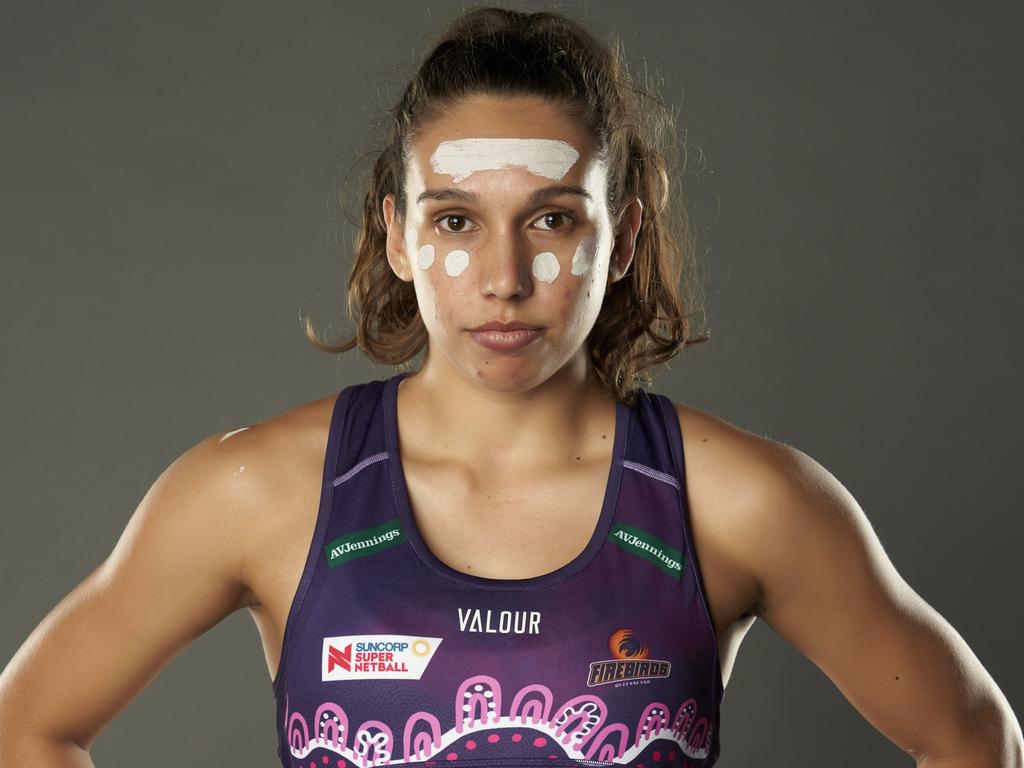
TIME FOR ACTION
The Black Swans program then, is then, a good first step that would not just allow First Nations netballers to play, but to revel in an atmosphere that would allow them to be their authentic selves, Wallam said.
“I think it’s a great start. I echo everything that Ali has said, and also, the work that Ali is doing is just amazing, so I’m really happy to see the Black Swans come to life now,” she said.
“I think when you can be your true self in an environment, then you are your best self.
“And that’s what you want from your players, is to be their best version and then they’re going to perform at their best.
“It needs to be a safe space for everyone to be who they are.”
Tucker-Munro sees dual roles for the program.
“(It’s) incentivising these amazing First Nations high performance pathway athletes to continue to strive and reach their dream of being an SSN (Super Netball) contracted player or a Diamond,” she said.
“But I think the second element of this is around incentivising those First Nations participants at grassroots level to say, look, there’s the pathway – I can finally see the front door to a pathway within the sport.
“I think that’s often a challenge for many in our community is knowing, where’s the front door?
“This is a really great way in which we are starting to reposition how we can make sure we are accessible and that we increase that level of awareness within our First Nations community.
“It’s time for change and time for action.”
More Coverage
Originally published as Netball Australia takes significant step towards addressing historical marginalisation of First Nations players




